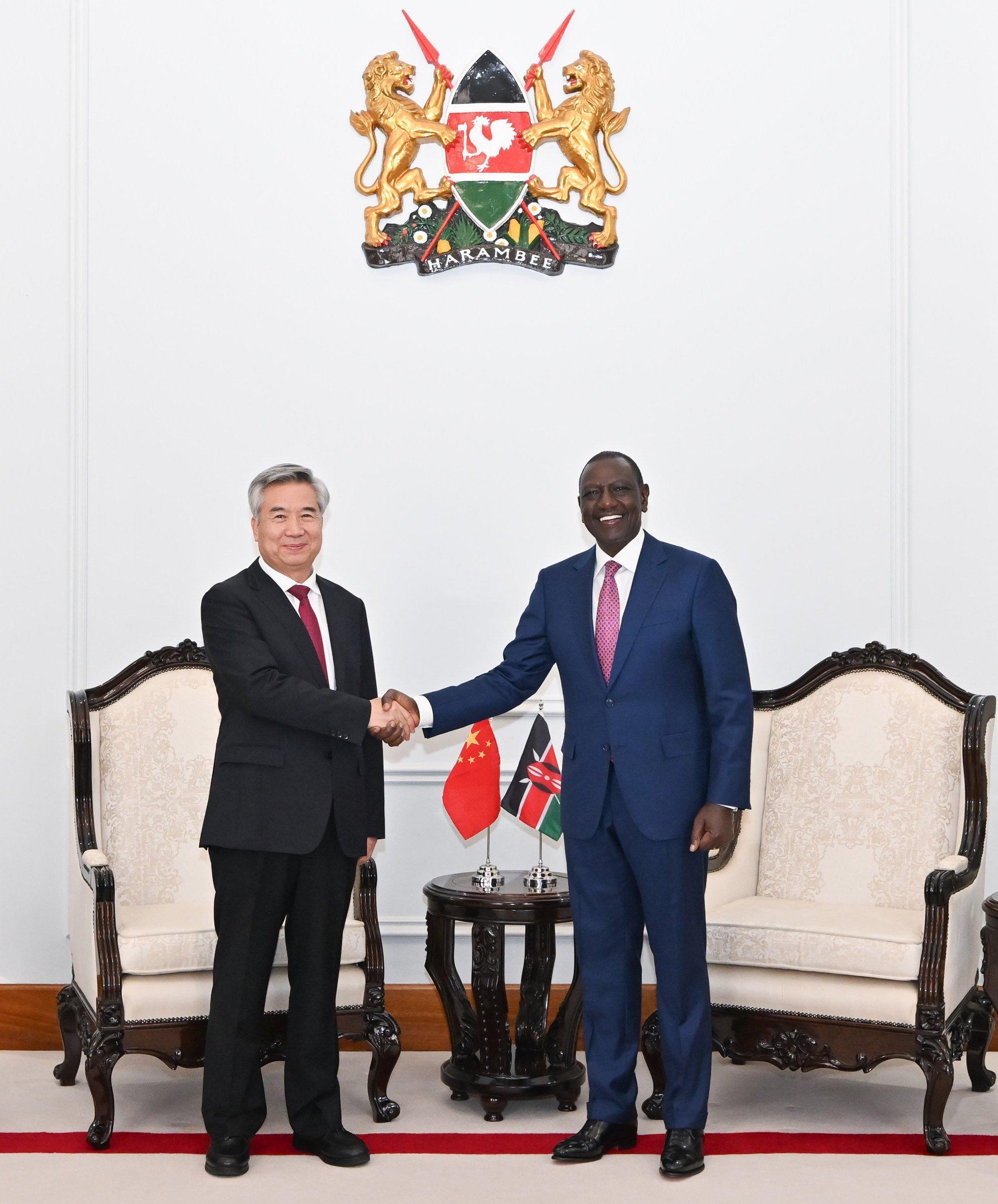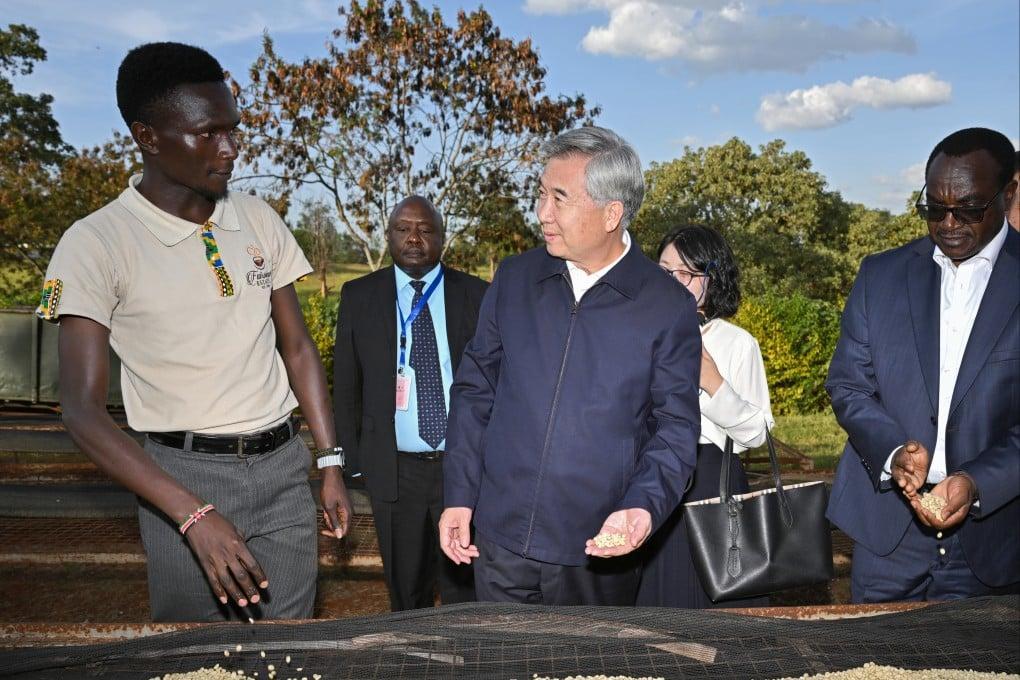Jevans Nyabiage
Africa-Press – Namibia. African countries with closer party-to-party relations with China’s Communist Party also tend to enjoy stronger economic relations with the Asian economic giant, analysts say.
Since the end of the Covid-19 pandemic, the Communist Party of China has held a flurry of meetings – either online or in person, in China or in Africa – with African political parties to reboot political and economic relations.
The Communist Party maintains ties with more than 100 political parties across Africa – although not in eSwatini, which recognises Taiwan.
The party has a long history of building relationships with political parties or movements in African countries such as Namibia, South Africa, Zimbabwe, Tanzania, Angola and Mozambique and supplied military and ideological training during their struggle for independence.
The relationships have remained robust and many of these parties and movements continued to hold joint training with the Communist Party over the decades.
Early this month, Li Xi, a member of the party’s Politburo Standing Committee, visited Kenya and South Africa in keeping with a trend of increased party-to-party political exchanges.
Communist Party members have met officials from the ruling party in Kenya, the United Democratic Alliance (UDA), at least three times this year. Beijing is trying to build a strong relationship in Kenya where China has bankrolled the building of mega Belt and Road Initiative projects, such as highways and railways.
When Li met his Kenyan hosts, China’s Communist Party agreed to support a grant to build a leadership academy or party school for the UDA. It is part of Beijing’s soft power push to promote its development model and geopolitical vision on the continent.
Further, Kenyan President William Ruto discussed with Li the extension of the Standard Gauge Railway to Malaba on the border with Uganda and the building of a major highway in Kenya that passes through the Rift Valley to the western part of the country.
In South Africa, Li and his delegation held closed-door meetings with President Cyril Ramaphosa and officials of the African National Congress (ANC) to discuss strengthening trade and political relations. Resource-rich South Africa is one of China’s key trading partners on the continent.
“From experience, the party-to-party level of engagement sets the tone and direction of cooperation,” said Frangton Chiyemura, a lecturer on global development at the Open University UK.

Chiyemura said deals were negotiated and sealed via this political avenue before being transferred to the state or government level, a process he had observed in all deals he had tracked over the years.
“This stems from an understanding, particularly from China, that there is a thin line that separates the party and the state,” he said, adding that in China and some African countries, the state is an extension of the party.
“So, I am not surprised that China – in this case the Chinese Communist Party – always tries to maintain good diplomatic relations with sister political parties in Africa,” Chiyemura said. “This is something most Western institutions tend to overlook.”
Christine Hackenesch, a project lead at Megatrends Afrika and senior researcher at the German Institute of Development and Sustainability (IDOS), said that in countries where China had strong economic interests its Communist Party also had close relations with the ruling party, with only a few exceptions.
Outliers included Angola or Nigeria where investments were strong but party relations were not very close, she said, adding that there was no evidence countries with stronger ties received more aid or investment because of their links with the party.
“However, in contexts where the business environment is particularly difficult and uncertain, it seems plausible to assume that close ties with the [Communist Party] could help address some of those risks and uncertainties,” Hackenesch said.
David Shinn, a professor at George Washington University’s Elliott School of International Affairs, said the Communist Party had a close relationship with the ANC in South Africa, but Pretoria did not receive significant aid because it did not need it.
But Shinn said China was a major source of direct foreign investment in South Africa, probably because there were good investment opportunities rather than because of the close relationship between the ANC and the Communist Party in Beijing.
He said the EPRDF – the previous ruling party in Ethiopia – had a close relationship with the Communist Party and Addis Ababa received large amounts of financing and foreign direct investment (FDI).
“There may have been a relationship here. Since the Prosperity Party came into power in Ethiopia, the relationship with the [Communist Party] has declined, as has the level of Chinese funding and FDI,” Shinn said, adding this could be due more to instability and economic conditions in Ethiopia than the relationship between the parties.
He said the relationship between the Communist Party and the ruling UDA in Kenya might better explain the role of the party-to-party relationship.
“Kenya received significant funding from China and a fair amount of foreign direct investment at a time when the two political parties were not especially close. It now seems they are building a stronger relationship. If there is a sharp increase in Chinese funding for Kenya and a growth in FDI, the party-to-party ties may be a significant part of the explanation,” Shinn said.
Hackenesch, who co-authored a recent report at Megatrends Afrika, a joint project of German partner institutions, on Communist Party diplomacy in Africa, said the Chinese party maintained close ties with the main ruling parties in southern Africa and in some countries in East Africa, while engaging with a broad range of political parties in countries in North Africa.
The Megatrends Afrika study found that regimes where the ultimate powerhouse lay within a strong dominant party with close ties to the business sector, party contacts might help navigate through weak regulatory frameworks and secure a better access to resources.
The report said this was relevant for countries in southern Africa where a dominant ruling party fused with the business sector, such as in South Sudan where the Communist Party had invested heavily in relations with the Sudan People’s Liberation Movement ahead of independence with a view to guaranteeing a grip on oil deposits.
In southern Africa, the Communist Party has close contact with most of the former liberation movements in power, particularly with South Africa’s ANC.
The Communist Party had close and regular contact with the ruling parties in Zimbabwe, Namibia and Mozambique. It also meets regularly with the Angolan Movimento Popular de Libertação de Angola (MPLA), although much less frequently than with the other former liberation movements in power in southern Africa.
That explains China’s financing and support of the Mwalimu Julius Nyerere Leadership School in Tanzania which trains the ruling parties of six countries in southern Africa. Beijing’s Communist Party cooperates with the school on the curriculum and organises training sessions.
source:scmp
For More News And Analysis About Namibia Follow Africa-Press






